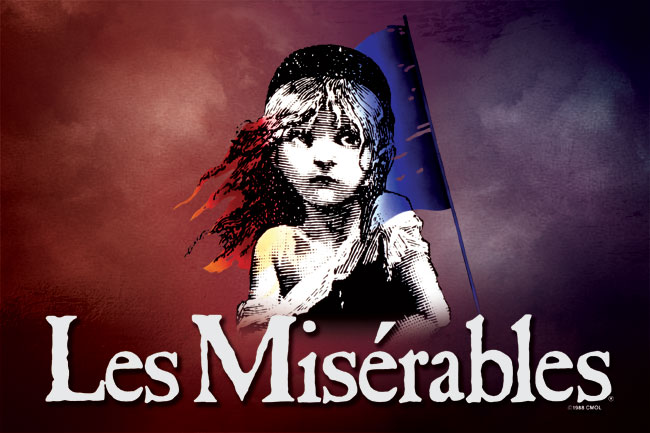
Les Miserables…Today!
(‘…Ι give you back to god!’)
It’s unbelievable how one book can change your life with the magical quality that only literature has. Especially when that book is also a well-known musical! Les Miserables, from the great novelist Victor Hugo, was first published in 1862, and was followed by many re-publications and big screen adaptations. In 1980, it was first presented as a musical, with the music composed by Claude-Michel Schonberg, with French and English lyrics-libretto written by Alain Boublin, Jean Marc Natel and Herbert Kretzmer respectively.
Since then, this musical phenomenon was presented to over 75 million people in 42 different countries worldwide, a truly special honor for the book, which is an achievement in modern literature.
The book discusses the history of the convict Jean Valjean, whose great poverty and hunger forced him to steal a piece of bread, resulting to his long-lived conviction in French prison. After his release, as long as he tries to redefine his life, he also finds plenty of ‘miserable’ people in the same conditions of poverty as him. At the same time, his faithful opponent, inspector Javert, follows him in a relentless chase in order to restore the law.
It is tragic to comprehend that in our age of development and technology, problems such as those described in Victor Hugo’s book still torment mankind.
In this eventful journey, we can easily find many sad similarities with today’s reality. How many Valjeans are forced to steal in real life? How many Javerts obey the law blindly? How many mothers sell their bodies in order to raise their children, as Fantine did; nonetheless, she could be considered as a martyr as well.
In this way, the story gains a timeless and ecumenical dimension. It is tragic to comprehend that in our age of development and technology, problems such as those described in Victor Hugo’s book still torment mankind. All these ‘miserable’ people remain miserable through the ages, however, the author gives them the homage that they deserve by writing this great novel.
Another relevance of the story in today’s reality is the focus on religion. In the book, there is given a significant-timeless importance of that matter. After the release of Jean Valjean, the only person that accepted to accommodate him in was a bishop. The bishop was wealthy, the temptation was too great and eventually Jean Valjean could not resist not to steal him. To his misfortune, he was caught by the local authority. At that moment is when the miracle happens:
‘Don’t forget. Don’t ever forget. You have promised to become a new man. Jean Valjean my brother you no longer belong to evil. With this silver, I have bought your soul. I’ve ransomed you from fear and hatred, and now I give you back to God.’
With these words, the bishop defies the authorities, giving away his stolen silvers. At this point lies the word of god; the truth. Here, Victor Hugo, just like a ‘bishop’ of literature, gives us strong, meaningful lessons of repentance, fraternity and humility, as with this act, Jean Valjean manages to carve a new path in his life, a path towards the light.
Putting into consideration the aforementioned example, the book is obviously considered to be one of the greatest Christian masterpieces. This is a work of art that is deeply humane and true and which speaks to each one of us independently. Whoever has the luck to read the book or watch the performance or even the films, will undoubtedly acquire a spiritual wealth.
Fantine sings: ‘I dreamed a dream…’
Be a part of that dream at Queens theatre in London!
‘Do you hear the people sing?’
